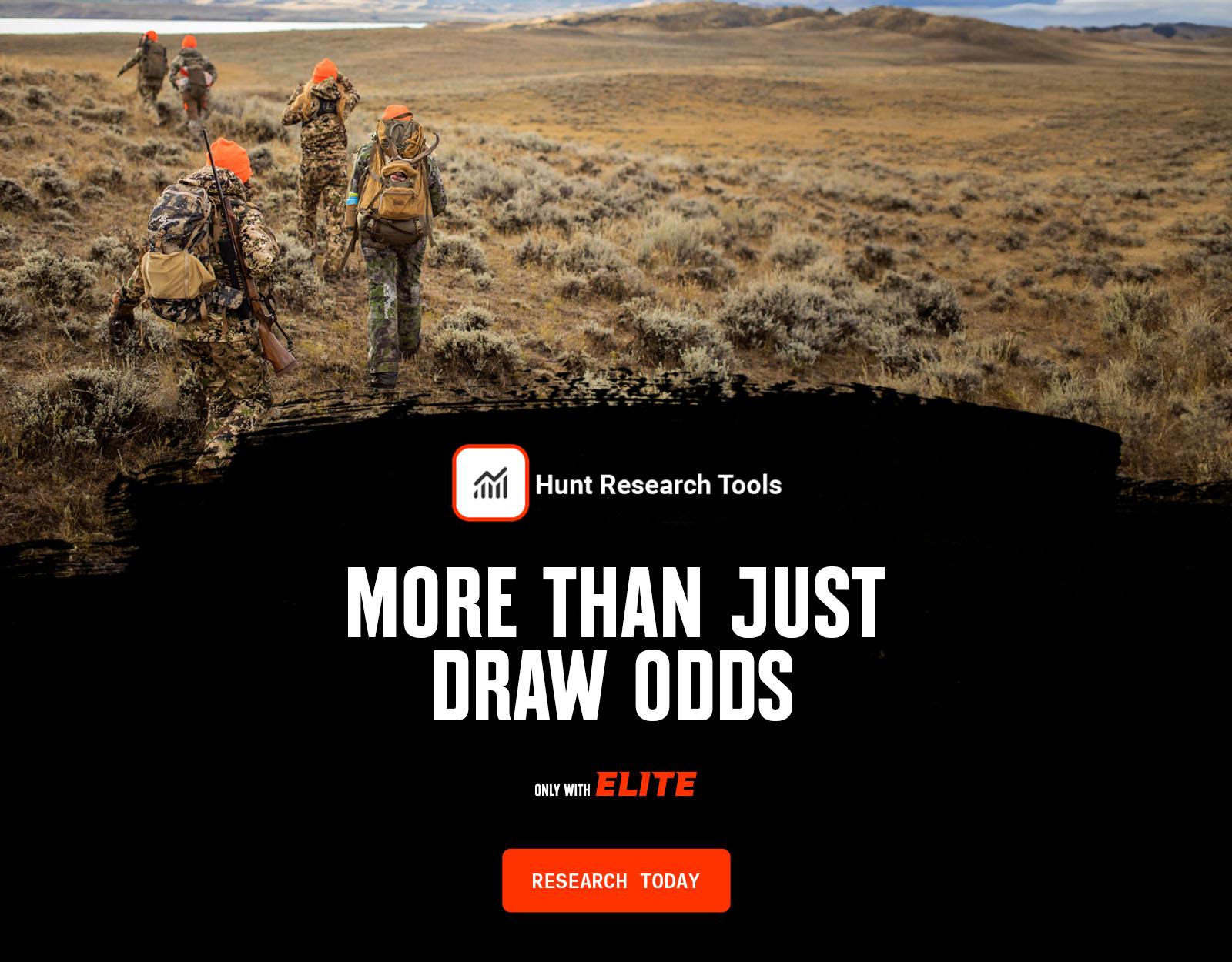Home to bountiful public land, fewer than 600,000 residents, and productive hunting for many sought-after western big game species, Wyoming is on most hunters’ bucket lists. Whether you’re after mule deer, elk, moose, bighorn sheep, mountain goat, or antelope, Wyoming is a state worth building points in as a hunter.
In Wyoming’s draw, preference point drawing accounts for 75 percent of available licenses in each hunt area. The remaining 25 percent go to a random draw, so it’s worth applying even if you haven’t been building points for years.
Application deadlines for non-resident elk close early on January 31, 2025, and the remaining tags for resident elk as well as other big game species are drawn in April and May (more detailed information below). Wyoming only accepts online applications.
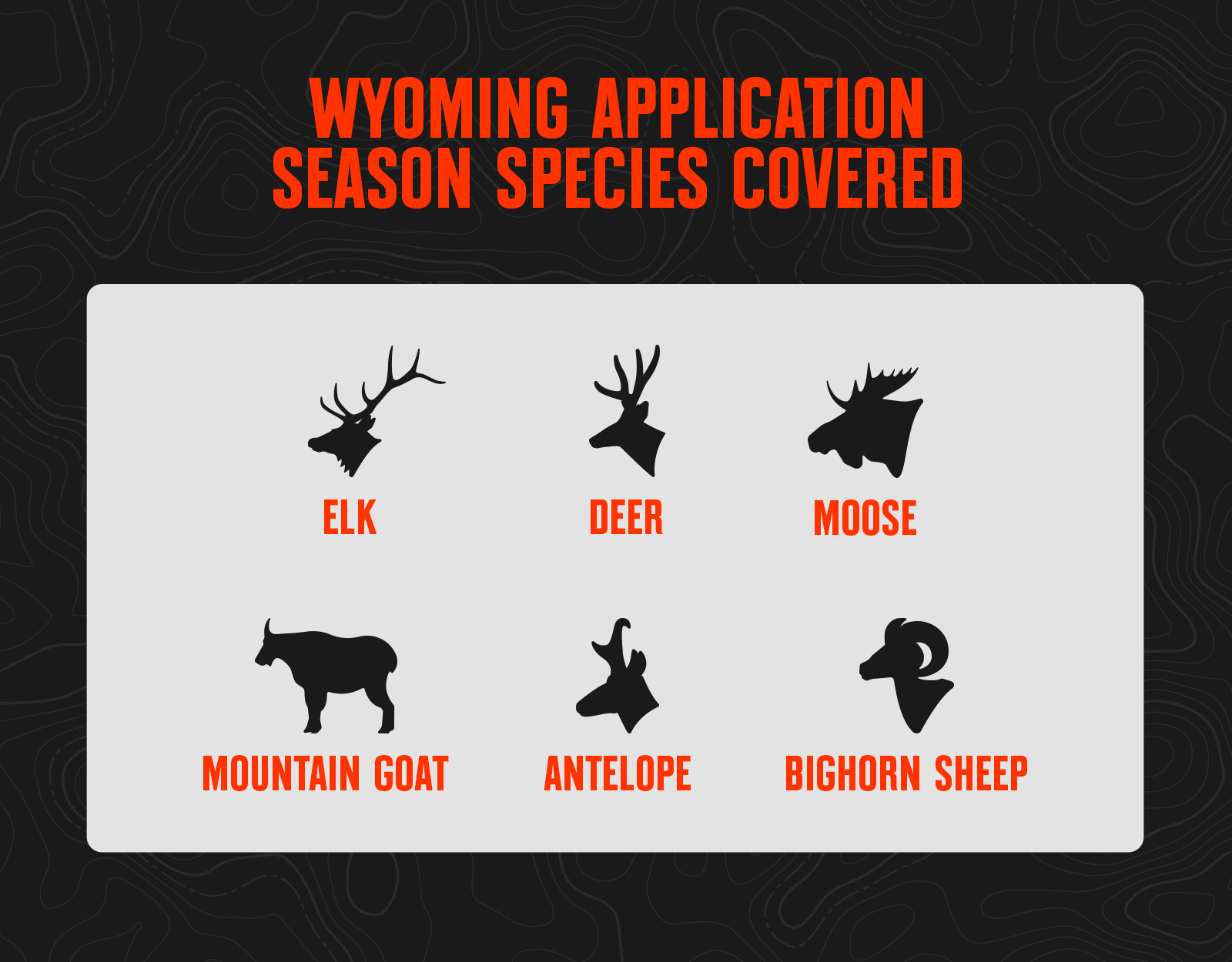
New in 2025 From Huntin’ Fool
- Wyoming now issues type 8 unlimited cow/calf elk licenses in several eastern elk units.
- New elk hunts, including some new type 9 archery licenses, may be adopted by late April.
- More non-resident general elk licenses will be issued than ever before with the three region split.
- There was no random draw bighorn sheep license in the 2024 drawing. Applicants with fewer than 24 sheep points had exactly 0% chance of drawing a sheep license.
- The deadline to modify your elk application is May 8th. Finalized hunt structures, seasons, and potential license quotas will be available in late April after the Commission meeting. You can also withdraw your application before this date.
- Due to the significant price increase of the special license, over 20 additional antelope units were drawn as second choice units in 2024.
- Deer unit 119 type 2 hunt dates have been moved from October 1-15 to October 15-31, making this a much more desirable hunt with mule deer bucks migrating in late October.
Huntin’ Fool’s Wyoming page is an excellent, updated resource for ongoing Wyoming draw changes.
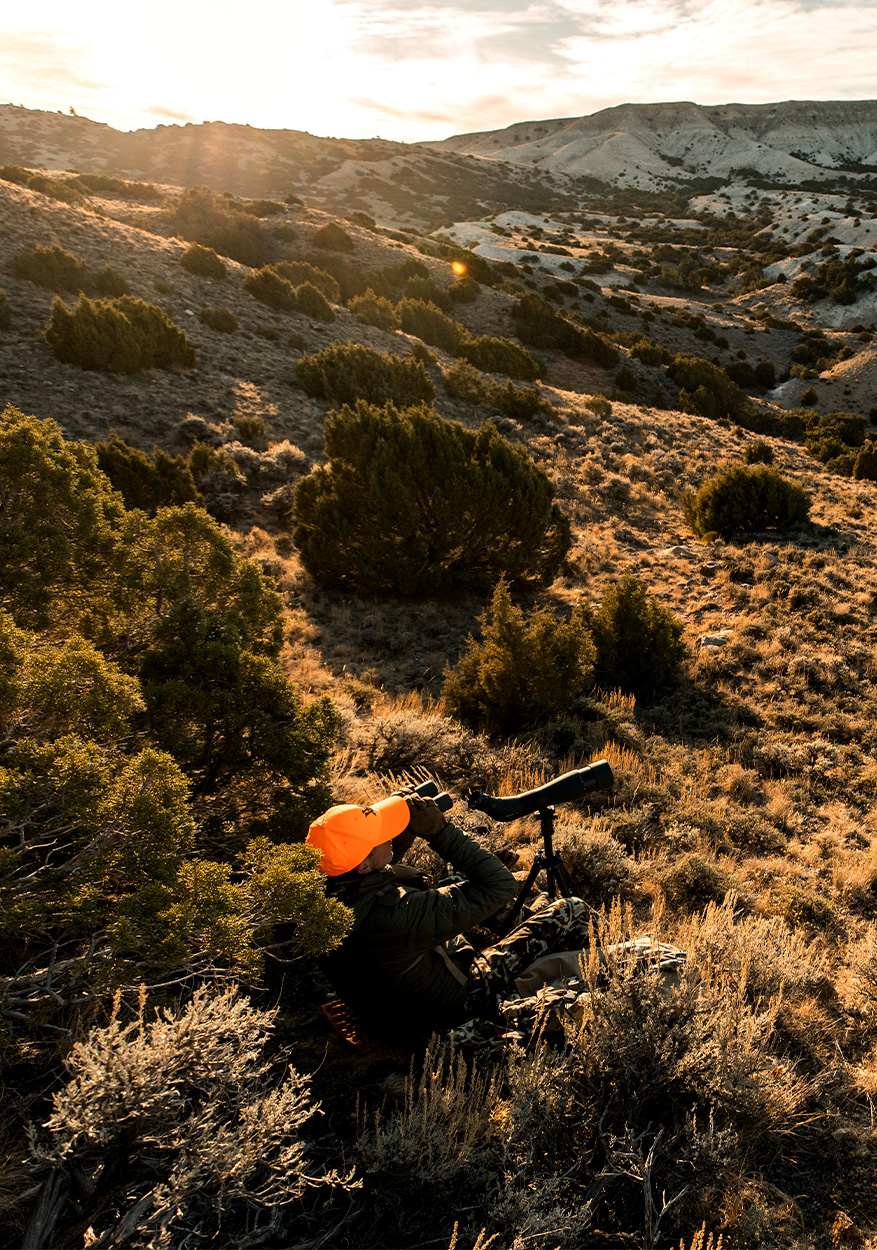
WYOMING DEADLINES
Non-Resident Elk
Moose, Sheep, Bison, & Mtn. Goat
Deer, Antelope, & Resident Elk
Leftover Draw
Points Only
Wyoming Draw Process Basics
Application Dates and Deadlines: Huntin’ Fool lines out Wyoming dates and deadlines.
Free for onX Elite members, Hunt Reminder’s Wyoming page is also an excellent resource for timely application season reminders.
Application and Tag Costs (Resident and Non-Resident)
Hunting license and species costs for tags usually include:
- Application fee.
- Hunting license fee to apply (usually need a qualifying license before you can apply).
- Species fee (This is what you pay for the animal you want to hunt. Some you pay upfront at application, some you pay for once you get the tag.).
- Points-only fee (fees for people just buying points and not actually applying for a hunt).
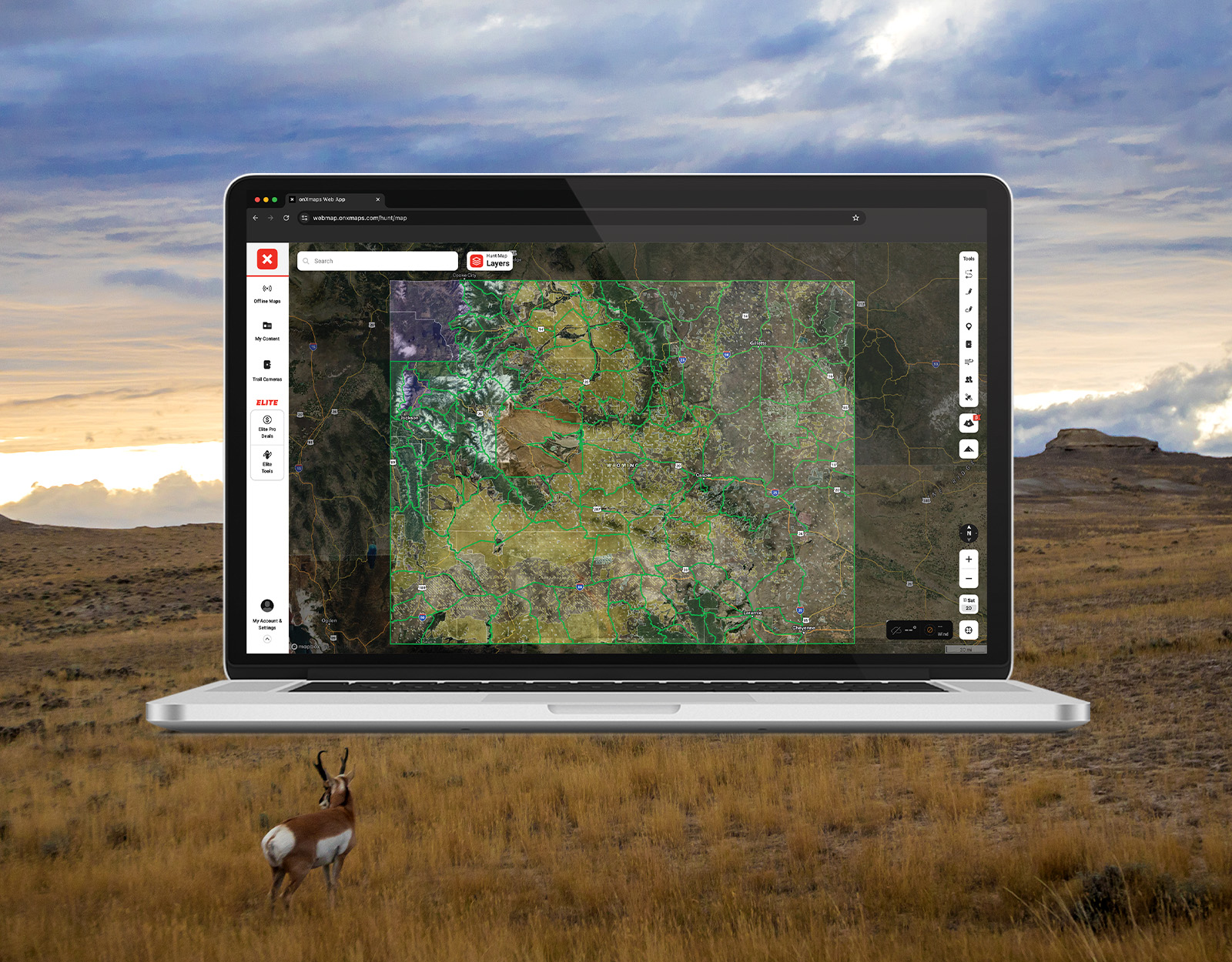
Useful Links
- Review all the Application Season Tools You Get With onX Elite.
- Log Into onX Hunt Research Tools To Start Your Application Season.
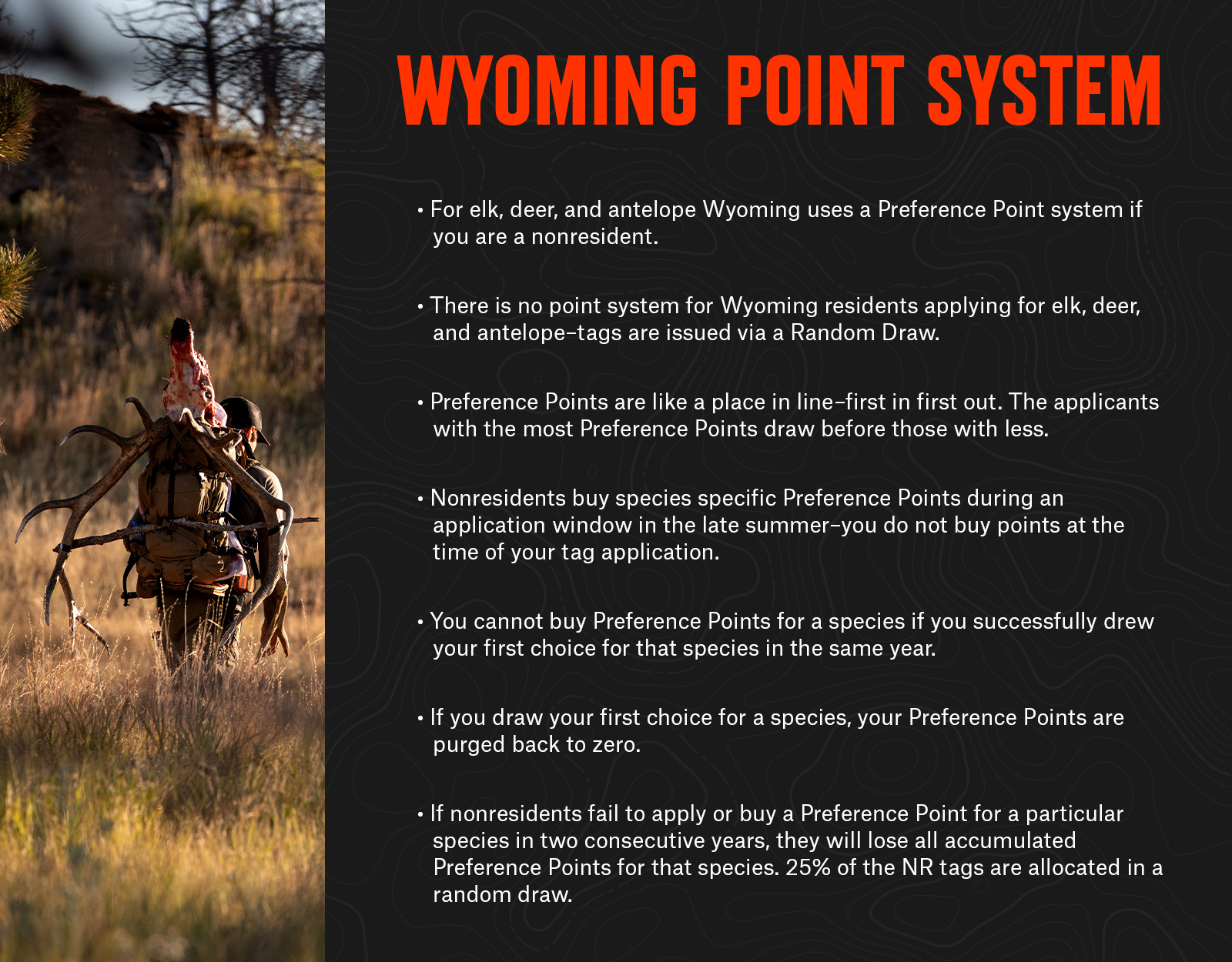
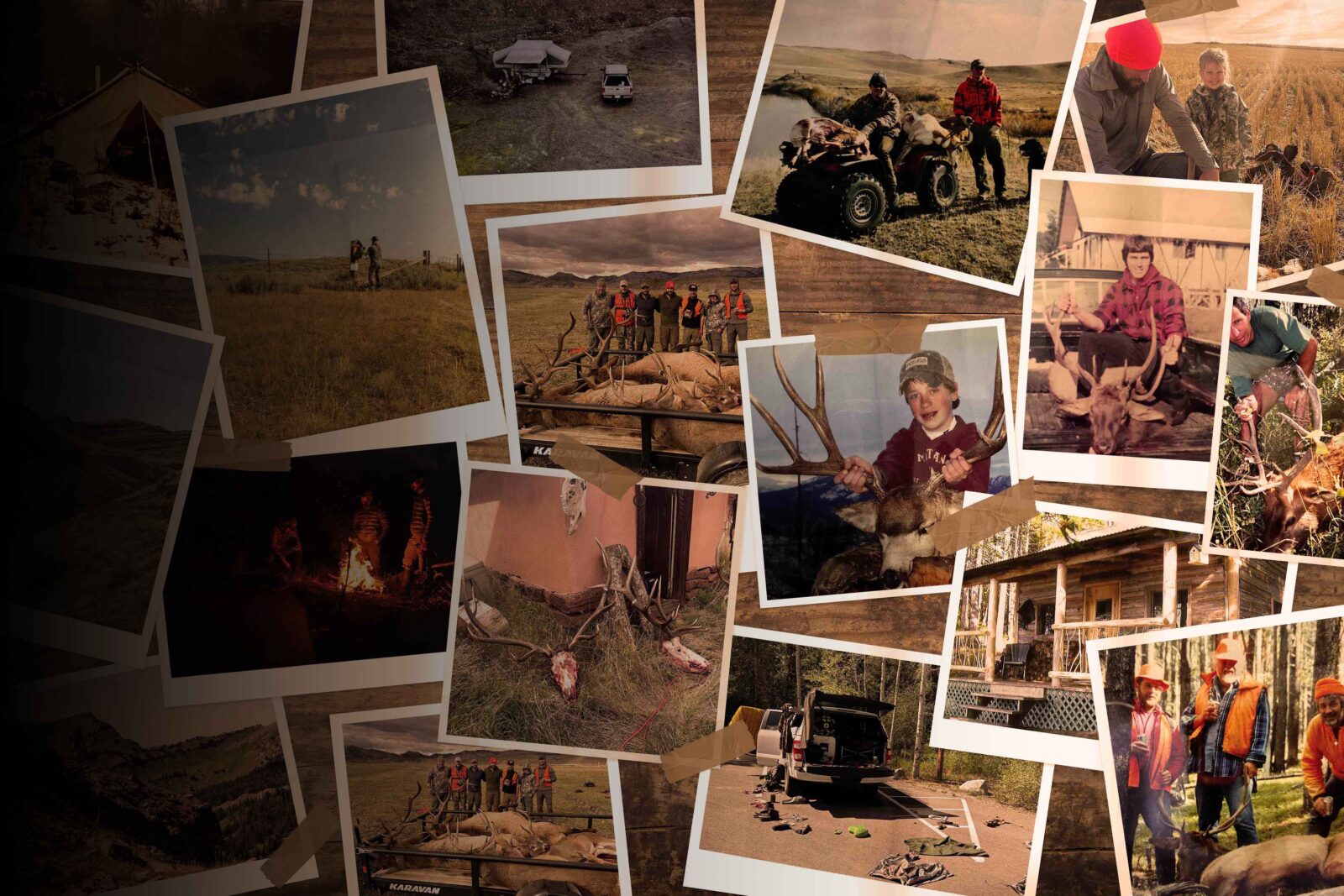

Your Complete System for Securing Tags
Whether you’re chasing a once-in-a-lifetime hunt or just looking to fill the freezer, your season starts with onX Hunt’s application tools—all included with an Elite Membership:
- Hunt Research Tools: Draw odds, tag trends, and harvest stats for 11 western states (Washington is not yet available) to help you decide where to apply.
- Huntin’ Fool: In-depth insights to navigate state-specific systems and build better strategies.
- HuntReminder: Text and email alerts so you never miss a deadline.
One membership, every tool you need to make 2026 the year.

